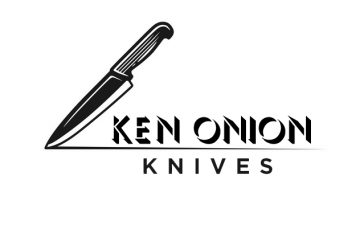
When you buy a Dozier D2 steel knife, it’s important to maintain its sharpness in order to avoid accidents that could result in damage. Fortunately, you can easily maintain your blade’s sharpness with a few simple steps. By following these tips, you’ll be able to keep your knife in tip-top shape for years to come.
Dozier’s D2-bladed knives have set a performance standard for years
Dozier’s D2-bladed steel knives have been setting the performance bar high for years. Their titanium frames and liner-lock mechanisms offer an impressive degree of security and durability. These knives are available in a wide variety of styles, including clip point, stag, dagger and spear point.
While the D2 has proven to be a reliable performer over the years, it does not have the pop appeal of other popular knife metals. Still, the high carbon steel is well known for its excellent edge retention.
Aside from its superior edge retention, D2’s other qualities include exceptional wear resistance and heat resistance. Despite these advantages, it is not as corrosion resistant as other stainless steels. Therefore, it is wise to regularly oil your blade.
When choosing a a D2 knife, be sure to choose a quality model with a blade grind that matches your requirements. Depending on your preferences, you can opt for a dished or hollow grind. In addition to the usual suspects, you can also consider exotic woods such as teak and macassar ebony.
Regardless of which handle material you select, the handle is designed with human hand curvature in mind. Aside from the ergonomics, you will also find that the Dozier’s handles are ample in size to fit your palm. They are also fully sculpted for an unbeatable grip.
Analogues of American steel D2
D2 is one of the most common tool steels used in knives. This steel has been around for many years and is widely available from almost all the major steel manufacturers.
When used in knives, D2 has a number of advantages over other high carbon steels. First, D2 holds its sharpening very well. Second, it is resistant to corrosion and wear. Finally, it has good hardness and toughness. It is also relatively inexpensive.
The first patent for chromium steel was issued in 1865. However, the production of the steel did not occur until the early 20th century. After World War II, it became popular as a die steel, especially for stamping and broaching machines.
The main competitor to D2 was 440C. But in the 1970s, D2 was the most commonly used stainless steel.
Compared with 440C, D2 offers better wear resistance and stain resistance. In addition, it has better impact strength. And because of its high chromium content, it is one of the best steels for cutting softer materials without a lot of wear.
Another advantage of D2 is that it can be sharpened with aluminum oxide abrasives. Silicon carbide bars are another option. However, D2 knives require a master’s help to be sharpened correctly.
Another reason why D2 is so popular is its rectangular shape. This provides consistent edge thickness. Furthermore, the height of the primary bevel can be changed to fit the thickness of the blade.
Avoiding high-impact tasks with a D2 blade
There are a number of steels that claim to be the sexiest, but few that can compete with the venerable D2 for sheer toughness and durability. For a reasonable price, you can get a mid-tier knife that will hold an impressive edge for months.
While a D2 blade will do the trick in a pinch, it’s not for everyone. If you’re looking for a tool that can stand up to the demands of a long day at the office, the best choice is probably one of the many high-carbon steels out there.
It’s a good idea to consider the properties of the various materials your knife is made from, as well as the appropriate treatment. One of the major downsides of D2 is the alloy’s tendency to decarburize and become soft when heated. However, with proper care, your blade can survive well beyond its expected lifespan.
The best part is that it’s a low-cost and reliable material. Several companies produce folders with D2 blades, including CRKT, Queen Cutlery and SOG. Some models, such as the SOG Terminus, even come with carbon fiber scales.
In addition to its wear resistance, the D2 is an excellent corrosion-resistant steel. This is in part thanks to the presence of 6% chromium. A lot of other stainless steels don’t have the same level of corrosion protection.
